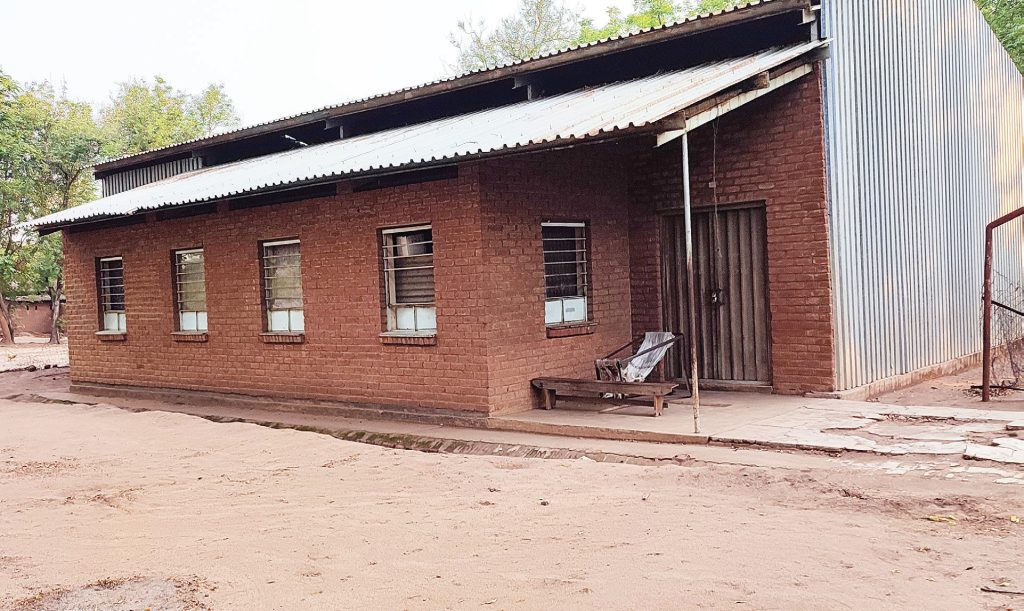‘Our Admarcs are vendors’
Across Malawi, people point at the Agricultural Development and Marketing Corporation (Admarc) as a fallen giant. The depots falling apart in disuse and closed when it matters most stimulate rage from Malawians who expect the State-owned firm to be active during the harvesting season as well as when hunger bites. Our Staff Writer BOBBY KABANGO unpacks the rot.
Admarc was established in 1971 to promote the country’s economy by increasing the quality and quantity of its agricultural exports.

In their minds, policymakers at the height of founding president Hastings Kamuzu Banda’s one-party rule also envisioned the State-owned corporation developing new foreign markets for the country’s agricultural produce and supporting farmers by buying and selling their yields.
However, 53 years on, the country’s single most important food security and export apparatus has all but collapsed.
The company now thrives on a threadbare workforce as the retrenched majority endure uncertainties over their dues from a stuttering giant struggling to stock and supply grain for a starving nation.
Year after year, Admarc depots nationwide grapple to live up to its billing as a ready market for farmers to sell their produce.
When the harvesting season kicks in, its markets are outrun by roaming traders who buy nearly all the grain before the parastatal gets ample funding to join the fierce scramble to replenish its stocks.
Its chronic delays compel farmers to sell their harvests to vendors who resell it at exorbitant prices during the lean season.
This also worsens hunger as some traders smuggle truckloads of the vital but cheaply acquired grain to neighbouring countries.
In October, this story takes us to Livunzu along the eastern bank of the Shire River in Chikwawa District where people stayed almost four years without a grain of maize at the nearest Admarc depot.
According to the starving locals, Limphangwe Admarc Market closed shop in 2019.
“At first, we were travelling some 10 kilometres distance to buy and sell our maize at Nkhathe Admarc, but that one too was closed in 2020,” narrates Gerald Kenti.
The community switched to Mitondo Admarc Depot, which had sporadic maize supplies at the onset of the lean season, which spans from October to the next harvest in April.
“A few days later, Admarc also shut down Mitondo depot. This left us with no alternative but to go to vendors who charge more than double the price they offer to buy our crops,” says Kenti, 48.
The farmer, from Phali Village in Traditional Authority (T/A) Makhuwira, says it is “a rip-off” for farmers to buy back their produce at skyrocketing prices.
“It’s a raw deal,” he says. “These traders buy our grain at cheap prices they dictate as if they toiled with us in the fields, but sell it back to us at prices many farmers cannot afford.”
For many Malawians like Kenti and his community, Admarc was a lifeline due to its nationwide network, stable prices and dependable scales.
“We need a solution now; Kamuzu came up with this idea to help farmers. We cannot go on like this,” he says.
At Limphangwe Admarc, we only found a security guard at the gate. The main door was sealed with a massive chain and two padlocks draped in spiders’ web.
“We have no hope of getting services from our nearest Admarc depot. It’s just history now,” said Noriah Edison, from Alusi Village in the riverside community.
Looking back, she says the Admarc depot with gaping cracks was a go-to place 20 years ago.
She explains: “We grow crops not only to eat with our families but also to sell surplus and use the money to meet our needs.
“Admarc was a trusted market for our produce. They used to tell us which crops to focus on and provide a ready market. Now our Admarc is a selfish vendor who buys our crops for peanuts and sells it back at prices beyond our reach.”
In September 2022, then minister of Agriculture Lobin Lowe closed Admarc and sent staff on paid leave to pave the way for restructuring aimed at improving efficiency and profitability. The High Court has since faulted the sacked minister for sidestepping the ailing corporation’s board of trustees.
In January last year, Admarc acting general manager Ethel Zilirakhasu announced a 100 percent retrenchment of its labour force of more than 4 000.
A year on, Admarc has yet to identify funding for the business re-engineering process as well as retrenchment payouts.
Consumers Association of Malawi executive director John Kapito says Admarc’s woes fuel impoverishing maize prices across the country as vendors cash in on the growing desperation.
It remains unclear when Admarc will be back to its former glory as the restructuring perpetuates a culture of political interference that brought the once towering giant to its knees.
Agriculture Minister Sam Kawale did not answer our phone calls despite several attempts to understand the current status of Admarc.
However, some analysts have proposed a public-private partnership where the government holds a minority stake for the sake of efficiency, transparency and accountability.
Meanwhile, the Parliamentary Committee on Agriculture is against the suggestion.
The oversight committee argues against this, saying the country has not reaped the benefits of State-owned companies placed under the proposed partnership. n






Good post! We will be linking to this particularly great post on our site. Keep up the great writing